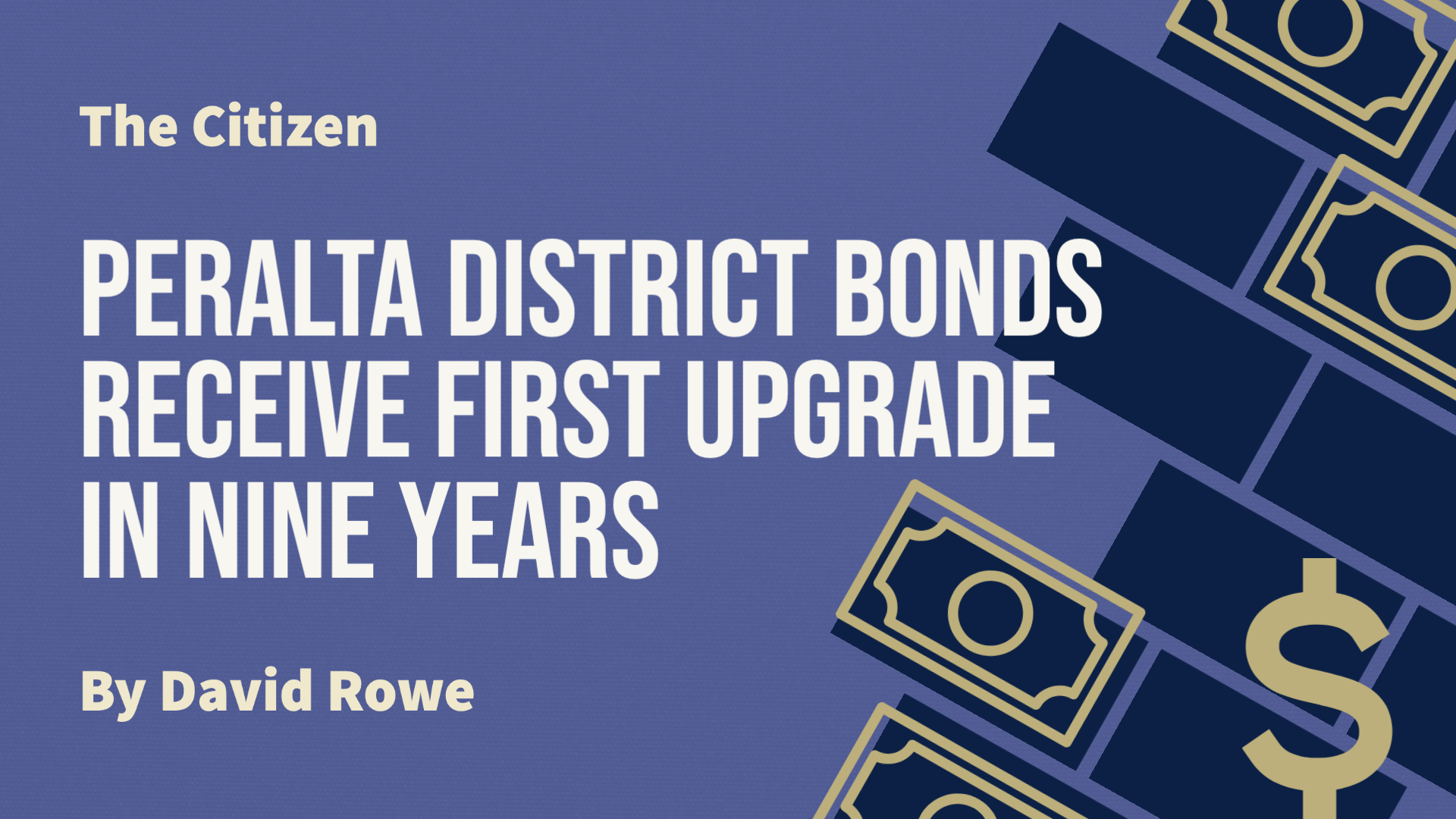
After nine years of downgrades on its bond ratings, the Peralta Community College District (PCCD) received positive news last month from Standard & Poor’s (S&P) and Fitch, two industry leading bond rating agencies. Both firms revised their financial outlook on PCCD from negative to stable and assigned an AA- rating to $150.6 million in new bonds the district sold in late October.
An AA rating indicates “very high credit quality,” according to the Fitch website, and is exceeded only by an AAA rating. A plus or minus sign is used to either “raise or lower a bond’s position with the group,” according to Kiplinger.
In a presentation to the PCCD Board of Trustees on Oct. 25, Jackson explained that the district intends to use $120 million from the new bond sale to finance district facilities programs for the next two years and $31.6 million to refinance older bonds issued in 2012.
“Ultimately, this [bond] sale will fund upgraded facilities for teaching and learning, helping students achieve their dreams,” Jackson said in a subsequent press release issued by the district.
The district estimates the refinancing of the 2012 bonds will “save taxpayers $1.5 million over the next 12 years.”
The specific projects to be funded by the bond sale, according to the district, include a new Berkeley City College Building, a new Auto and Diesel Technologies Building and Aviation Complex at College of Alameda, a new Child Development Center and Horticulture Building at Merritt College, and a Learning Resource Center at Laney College.
Board President Cindi Napolli-Abella Reiss reacted favorably to the news, characterizing the bond sale as “yet one more tangible, substantive evidence [sic] that this district is moving forward.”
Bond buyers use the ratings to assess the risk of default before investing. Buyers for the latest Peralta bonds included Vanguard, First Republic Bank, and BlackRock, according to Jackson.
The bonds have maturity dates ranging from 2023 to 2052, according to the PCCD press release, with interest rates from 5%-5.5%. Municipal bonds issued by California agencies are typically exempt from both state and federal taxes, according to Investopedia.
Both Fitch and S&P cited progress being made by the district on its accreditation status and on issues raised by the Fiscal Crisis Management Assistance Team (FCMAT) in a 2019 report.
Fitch observed that the Accrediting Commission for Community and Junior Colleges (ACCJC) moved the district from a probation status to a “lower warning status” in January 2022. ACCJC held a follow-up meeting last month, according to Fitch, and “will provide a further update in January 2023.”
With reference to FCMAT, Fitch reports that the district “has addressed 68 out of 78” recommendations and “reports consistent improvement in addressing the outstanding recommendations.”
Despite these promising trends, Fitch identified “headwinds” facing the district in the coming years. Specifically, Fitch expressed concern that “top leadership positions are held in acting or interim capacities” and a “new community college funding formula implemented by the state[…]could result in a flat revenue base for the district.”
This new state funding formula, which will be implemented in the fiscal year for 2025, could create a “mis-alignment between increasing expenditures and flat revenues,” according to Fitch.
S&P said its ratings for PCCD bonds were based, in part, on the Bay Area’s “robust economic base,” the district’s “maintenance of strong reserve levels,” supplemental parcel tax revenue through 2028, and the district’s flexibility to “set course offerings and adjust staffing.”
Like Fitch, however, S&P was concerned about “continued management turnover” at PCCD and referenced a “history of audit findings over the past several years related to internal controls for financial statement reconciliations.” S&P noted that the fiscal 2021 audit did “not cite material weakness,” however.

























